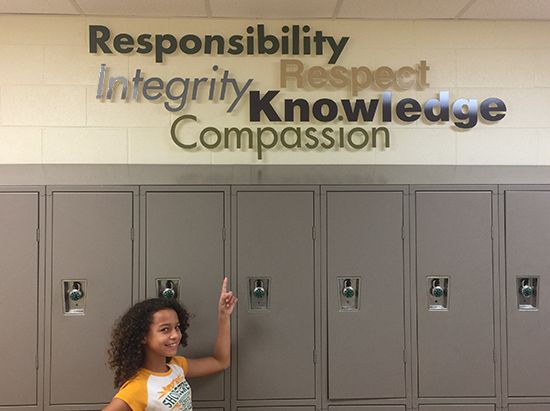

Tolerance or No Tolerance
Source/Author: Mike Murphy, Headmaster
September 01, 2017
Go ahead, pick the topic: racism, sexism, bullying, cheating, stealing, violence, inappropriate use of social media, sexting… These and other issues can result in students being suspended, expelled or rejected by a school community. In 2017, Harvard University rescinded the acceptances of at least ten incoming freshman because of racist and pornographic postings the students sent to other people. Clearly, Harvard does not feel a responsibility to coddle 18 and 19 year olds who engage in behavior not consistent with the values of the university.
It is one thing to address the behavior of 18 and 19-year-olds, but what about children between the ages of 3 and 17?
From time to time, we read stories about how young children are disciplined at school that makes one wonder what ever happened to common sense. Remember a few years ago when a 4-year-old was suspended from pre-school because he had a 2-inch plastic gun clipped to his backpack along with dozens of other plastic toys?
Over the years, I have found that disciplinary systems are celebrated until they impact one of our own children.
Over the years, I have found that disciplinary systems are celebrated until they impact one of our own children.
The oldest daughter of one of my mentors was the “dream child.” She created a false sense of accomplishment for my friend and his wife. He was quick to offer parenting advice and at times was overly confident and maybe a little arrogant in how he addressed parents who did not have “dream children.”
Then, one of his younger children, who had manifested good behavior through seventh grade, became a revolutionary adolescent. It was difficult to watch my mentor and his wife struggle with the challenges their child presented to them. They had never imagined trips to the police station. There were sleepless nights when she did not come home for days. They “tried”everything to get her on the right track, but she pushed back. The events left a lasting impression on me that no matter how hard one tries to be a positive and constructive parent, it is possible for one or more of our children to test the limits.
Bullying has become a huge part of our national conversation. There is no doubt that schools need to address children and adults who systematically engage in verbal or physical abuse on a targeted individual. However, events that were once viewed as isolated incidents are at times characterized as bullying. Bullying is a monumental challenge.
However, not every parenting challenge is as monumental as the one my mentor and his wife experienced or a family experiences when bullying occurs. Most misbehaviors involve “normal” childhood actions that cause short-term concerns.
For example, parents of young children may learn that their child is a biter. Most of the time parents understand that biting is a phase and can be controlled. But there are times when parents have zero tolerance for a child who bites. Biting gets clumped in with bullying, and young children and their parents are condemned by individuals. Clearly, the parents and the school have a responsibility to give the biter more positive ways to express himself/herself. At the same time, the parents and school have a responsibility to ensure the safety and positive environment for the other children. But expelling a child for a single bite, more times than not, is an extreme response.
Should a school expel a student for a single incident of social media harassment?
Should a child be expelled for having a temper tantrum in class?
Should cheating be a “one strike and you’re out” event?
These are not simple questions and they do not have simple answers. Each incident is unique.
Some incidents can be very matter of fact, and others can be shrouded in layers of issues that create incredible complexity. Our responsibility as parents and schools is to determine how we can best serve the individual who has violated a rule, and at the same time maintain the integrity of the school community. I vote for tolerance in most situations. I vote for tolerance because the next case just might be your child.
Cheers!
Mike
























